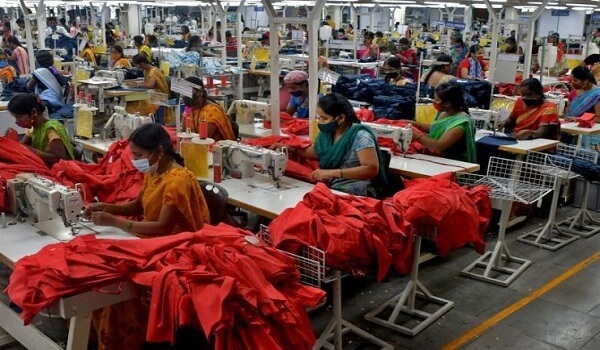The Confederation of Indian Textile Industry (CITI) and the International Labour Organisation (ILO) have jointly launched the project titled Fundamental Principles and Rights at Work (FPRW).It will help create awareness and share technical know-how and knowledge about the best labour standards.
ILO’s Fundamental Principles and Rights at Work (FPRW) Project
- It is a commitment by governments, employers’ and workers’ organisations to uphold basic human values that are vital to our social and economic lives.
- The ILO Declaration on Fundamental Principles and Rights at Work (FPRW) was adopted in 1998 and amended in 2022.
- Increasing concerns about the social impact of globalisation led the members of the ILO to recognize four categories of labour standards, expressed in eight conventions.
- In 2022, four categories were amended to become five categories with the addition of the occupation of safety and health conventions, expressed in ten conventions.
Five Categories of FPRW Project and Related Conventions
- Freedom of Association and the Effective Recognition of the Right to Collective Bargaining: It is the prerogative of workers and employers alike to form and manage their own organisations, free from external interference.Through collective bargaining, employers and workers discuss and negotiate their relations, in particular terms and conditions of work.
It is enforced by conventions like
- Freedom of Association and Protection of the Right to Organise Convention (No. 87), 1948
- Right to Organise and Collective Bargaining Convention (No. 98), 1949.
Elimination of All Forms of Forced or Compulsory Labour:
- Labour should freely join, and employees should be free to leave, subject to
- previous notice of reasonable length.
It is enforced by conventions like
- Forced Labour Convention (No. 29), 1930
- Abolition of Forced Labour Convention (No. 105), 1957.
Effective Abolition of Child Labour
- ILO Convention No. 138 (minimum age for entry into work or employment) and Convention No. 182 (Elimination of the Worst Forms of Child Labour) set minimum age requirements for work, ensuring it is not below the age for compulsory schooling, and in any case not less than 15 years.
It is enforced by conventions like
- Minimum Age Convention (No. 138), 1973
- Worst Forms of Child Labour Convention (No. 182), 1999.
Elimination of Discrimination in Respect of Employment and Occupation
- Exclusion or preference should not be made on the basis of race, colour, sex, religion, political opinion, national extraction or social origin.
- It provides for equal remuneration for men and women workers for work of equal value.
It is enforced by the following conventions
- Equal Remuneration Convention (No. 100), 1951
- Discrimination (Employment and Occupation) Convention (No. 111), 1958
Safe and Healthy Working Environment
- ILO Convention No. 155 aims to prevent accidents and health problems at work, while Convention No. 187 mandates continual improvement in occupational safety and health to prevent injuries, diseases and deaths.
It is enforced by the following conventions
- Occupational Safety and Health Convention (No. 155), 1981
- Promotional Framework for Occupational Safety and Health Convention (No. 187), 2006.
FPRW requirement for India
- Non-tariff barrier to trade: Cotton and hybrid/hybrid cotton seeds from India remain on the US Department of Labor’s “List of Goods Produced by Child Labor or Forced Labor”. The FPRW project will help India reduce this barrier to trade.
- Global obligations: ILO’s FPRW project applies to all ILO member countries, whether they have ratified it or not. It is an integral part of the ILO constitution. Since India is a member of the ILO, it is required to comply with the FPRW project.
- Sustainable workforce: Cotton producing communities can promote a more equitable, sustainable and prosperous environment for all workers, which can bring long-term benefits to individuals and families.
- Socio-economic upliftment: This collaboration will provide information to farmers about various government schemes and initiatives aimed at their socio-economic upliftment.
- Outreach services, information dissemination and linkages with vocational training facilities to the targeted communities can help improve their condition.
- It is essential to achieve Sustainable Development Goals (SDGs) such as SDG 10 (Reduce inequalities), SDG 8 (Decent work and economic growth).

